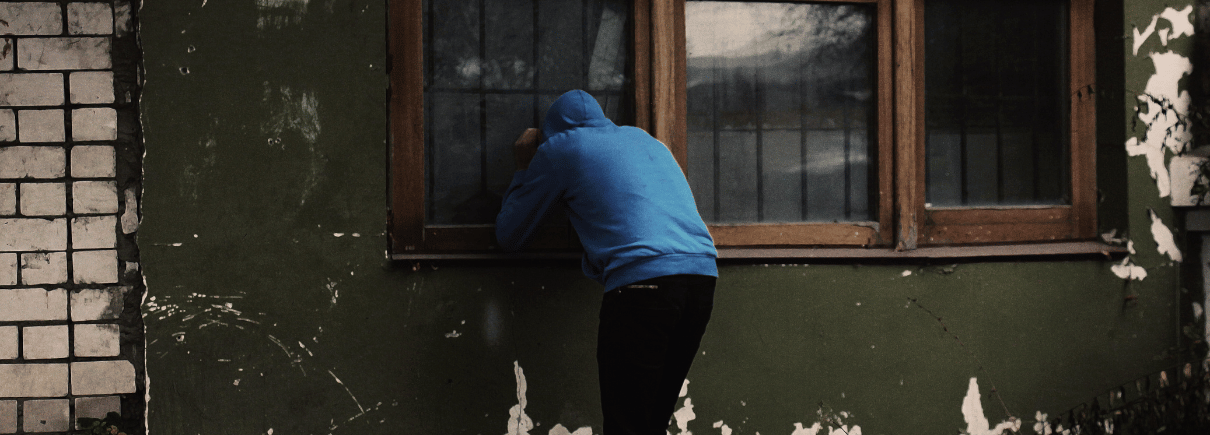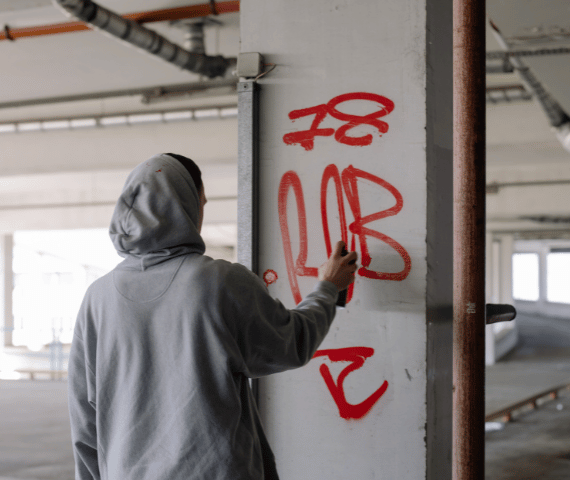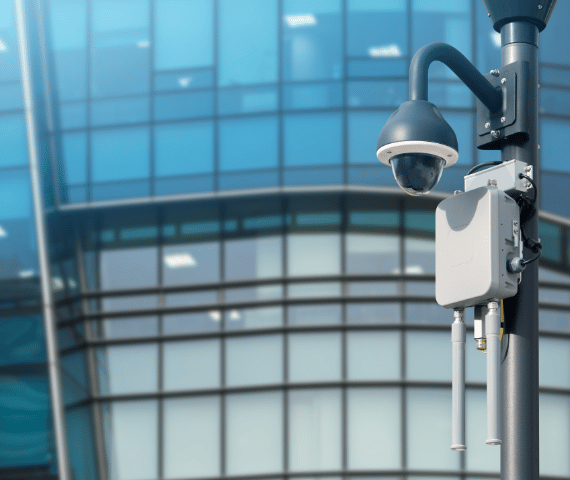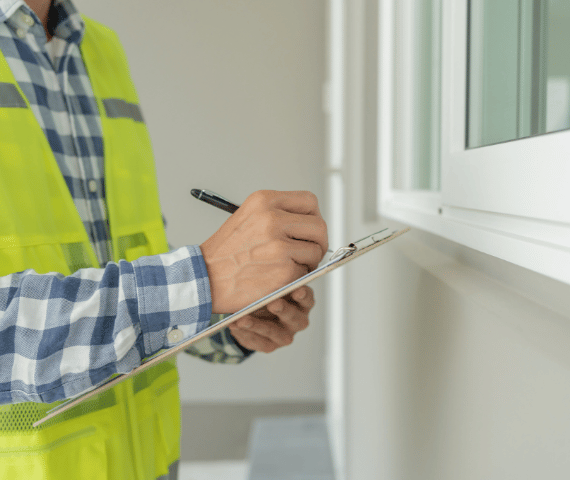Security Risks for Empty Buildings: How to Safeguard Your Property
Securing Vacant Properties Against Vandalism, Squatting, and Theft
Vacant commercial properties can attract security challenges that lead to costly damage, legal consequences, reputational damage, and additional costs for landlords. Criminal activities like vandalism, squatting, theft, and anti-social behaviour are significantly more likely in properties that aren’t occupied or supervised. For many of us, the impact of poorly handled or mismanaged security can be seen across High Streets, retail areas and industrial spaces in the form of urban decay, damage and deterioration. Landlords need to understand the security risks associated with empty commercial properties and take proactive steps to mitigate them.
What Are the Key Security Risks for Vacant Properties?
Vacant properties face unique security risks that can result in significant financial and legal challenges for owners. Understanding these risks is the first step in preventing damage and safeguarding your investment. Each threat requires proactive strategies to mitigate potential losses, from vandalism and squatting to theft and anti-social behaviour. This section delves into the common risks associated with empty buildings and highlights why addressing them is crucial for property owners.
Vandalism & Graffiti
Empty buildings are prime targets for vandalism. With no occupants to deter trespassers, these properties often fall victim to graffiti, broken windows, and other forms of destruction. Beyond the immediate damage, vandalism can tarnish a property’s appeal, leading to devaluation and costly repairs.
Squatting & Security risks
Vacant buildings can attract squatters. Squatting is defined as occupying a property without the owner’s permission. In commercial property, it is considered a civil rather than a criminal matter, meaning evicting squatters can become a lengthy and costly process. The presence of squatters is also proven to lead to further property damage and misuse.
Theft & Break-ins
Vacant properties are vulnerable to break-ins and theft. Even with empty properties, criminals can often target valuable materials like copper wiring, timber, metals and fixtures. Replacing these stolen or damaged items can be financially draining and time-consuming.
Anti-Social Behaviour
Unsecured vacant properties often become hubs for anti-social activities associated with urban decay such as crime, drug use, and unauthorised use. This can create safety concerns for neighboring areas and complicate future property management.
Being aware of these risks is the first step toward effective prevention. Addressing them proactively not only minimises financial losses but also helps avoid potential legal implications, which are discussed in detail in the next section.
Legal Consequences of Security Risks in Vacant Properties
Neglecting the security of vacant properties can lead to serious legal repercussions for owners. Beyond the financial costs of repairs or stolen items, property owners may find themselves facing liability issues if someone is injured on their property. Additionally, failure to comply with local regulations for property upkeep can result in fines or legal actions. This section explores the potential legal consequences property owners should be aware of and the risks of inaction.
Liability for Injuries
Property owners may face liability issues if someone is injured on their vacant property due to poor upkeep and lack of supervision – even if the person is trespassing. Maintaining property security as part of a responsible property management strategy will reduce the risk of legal problems.
Legal Actions Against Property Owners
Neglected vacant buildings in danger of falling into disrepair can attract fines or legal action from local authorities. Failing to secure a property may also violate industry-specific safety regulations, leading to financial penalties and legal disputes. If you face an empty commercial property, it pays to get specific legal advice regarding security.
Squatting & Adverse Possession
In extreme cases, failure to successfully challenge squatting of commercial properties in the civil courts can lead to Adverse Possession. In the UK, this legal process means squatters can claim ownership of a property if they occupy a property continuously for 10 to 12 years.
Neglecting the security of vacant properties can lead to significant legal consequences for owners. Property owners may face liability if someone is injured on their premises, even trespassers. Failure to maintain properties can result in fines or legal actions due to non-compliance with local regulations.
Additionally, prolonged squatting can lead to adverse possession, where squatters gain legal ownership. Proactively managing and securing vacant properties minimises these risks and protects owners from potential legal complications.
How to Protect Your Vacant Property from Security Risks
There are many ways a commercial property can be protected from security risks. Our view, at ASTOP, is the best protection is the avoidance of unoccupancy in the first place. Even temporary tenants can maintain the property’s security with minimal impact. It is why we specialise in partnering tenants with landlords looking for support.
Other security measures include;
Property Guardianship For Vacant Buildings
Property guardians are individuals or groups who reside in vacant properties to provide security and deter illegal activities such as squatting, vandalism, and theft. In exchange for affordable living arrangements, guardians help maintain the property condition and presence, offering practical security solutions for property owners.
Physical Barriers and Perimeter Security
Strong physical barriers such as gates, fences, and secure locks are essential in preventing unauthorised access. Investing in reinforced doors and windows further enhances security, making it harder for trespassers to break in.
Surveillance and Alarms
Installing CCTV cameras, motion detectors, and alarm systems can deter intruders and provide evidence if breaches occur. Visible security measures act as a deterrent, signaling that the property is under active monitoring.
Hiring Security Personnel
For larger or high-risk properties, hiring security guards to perform regular patrols can be an effective deterrent. Trained personnel can quickly identify and respond to potential threats.
Remote Monitoring and Smart Technology
Smart technology, such as remote monitoring systems, allows property owners to keep an eye on their buildings from anywhere. Integrating sensors with mobile alerts ensures prompt action in case of suspicious activity.
Regular Inspections and Maintenance to Prevent Risks
Frequent property checks are vital for preventing break-ins in empty properties, avoiding damage, and reducing the risk of squatting. Regular inspections also help ensure that security measures remain effective and intact.
Sealing Unused Areas
Sealing off unused sections of a property can limit access points, reducing the risk of unnoticed intrusions. Boarding up windows and securing entryways is a straightforward yet effective measure.
Managing Utilities
Turning off or minimising the use of utilities such as electricity and water can deter criminal activity while reducing fire risks. Keeping utilities in check also simplifies property management and lowers operational costs.
Insuring Proper Insurance Coverage for Vacant Buildings
Standard insurance policies often exclude vacant properties, making specialised vacant property insurance essential to avoid legal problems and additional expenses. This typically protects against risks like vandalism, theft, and fire damage. Liability for vacant commercial properties insurance is equally important. It covers legal and medical costs if someone is injured on your property, even if they are trespassing. For commercial properties, liability insurance ensures compliance with regulations while safeguarding against potential lawsuits.
Consulting with insurance professionals ensures you select the right policy to fit your circumstances. Proactively securing the right coverage offers peace of mind and financial protection, allowing property owners to address risks effectively while avoiding unexpected legal and repair costs.
Protect Your Property: Proactive Security Measures for Vacant Buildings
Vacant buildings face significant security risks, including vandalism, squatting, theft, and anti-social behavior, which can lead to financial losses, legal issues, and reputational damage. Without occupants, properties are vulnerable to graffiti, material theft, and unauthorised use. Squatting poses legal challenges and can escalate into adverse possession, allowing squatters to claim ownership after prolonged occupation.
By combining robust commercial vacant property security measures and proper insurance, property owners can mitigate risks, maintain property value, avoid costly legal complications, and ensure their investments are safeguarded.
However, in our view, the best defence is avoiding vacant periods with short-term flexible tenancy agreements. This is ASTOP’s core business and, should you wish to know more, our Director, Shayelsh Patel, can offer expert advice.
Explore More
If you are a commercial landlord facing a period of unoccupancy, you can read other helpful blogs from ASTOP, including risks of vandalism, legal issues related to empty property, business rates relief, and more here.







